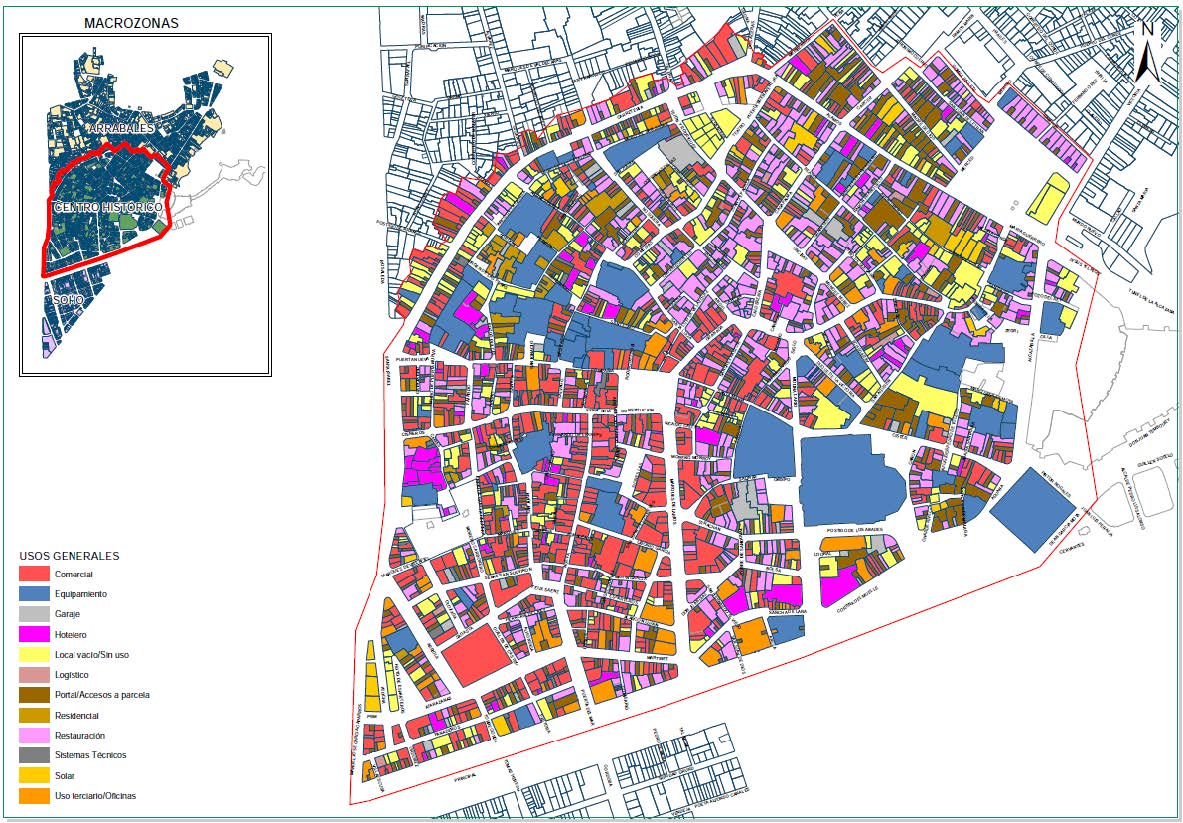
The Malaga pilot, within the MEISTER project, focuses on three areas within the city: a priority one, in the Center, and two additional, in the Cruz de Humilladero and Carretera de Cádiz districts.
The Historic City Center of Malaga has 35,000 inhabitants and a population density of 115 inhabitants / hectare. The problem of urban distribution in this area is due to the high demand of the food services sector (HORECA channel of hotelrestaurants-cafes) and shops. In addition, being a very tourist area, the oscillation of demand is influenced by the increase in the floating population due to this sector.
For its part, the areas of Cruz de Humilladero, with 90,000 inhabitants and a population density of 200 inhabitants / ha, and Carretera de Cádiz, with 115,000 inhabitants and 180 inhabitants / ha, are characterized by a high demand for supply to traditional businesses and parcel delivery related to e-commerce.
The main objectives of this study are:
- The smart allocation and management of last mile distribution points for electronic commerce and urban logistics through interoperable charging points.
- The installation of solar panels for the supply of renewable energy (RES) to charging points.
- The use of the appropriate size of electric vehicles (EVs), that is, enough battery range to cover the distribution area.
- The environmental, social and economic impacts of last mile collaborative delivery with electric vehicles.
- Recommendations to allow ultra-low emissions.
The work has been divided into the following sections:
- Assessment, where the following sections are addressed:
- Demand Analysis, so it will be studied:
- Economic activities.
- Boom of “e-commerce” and home delivery service.
- Generation centers as far as goods transport vehicles are concerned.
- Analysis of Goods Vehicle Traffic.
- Supply Analysis, which includes:
- Access control for heavy goods transport vehicles.
- Inventory of parking places enabled for loading and unloading.
- The Urban Center for Ecological Distribution (CUDE) located at C / Camas.
- Diagnosis, where the results obtained are concluded and summarized.
- Demand Analysis, so it will be studied:
- Proposals for action, which are:
- Improvement of the Urban Center for Ecological Distribution (CUDE) at C / Camas.
- New Urban Center for Ecological Distribution (CUDE).
- Dedicated on-street loading and unloading places for goods electric vehicles.
- Conclusions
Download the report (PDF, 4.30MB)
